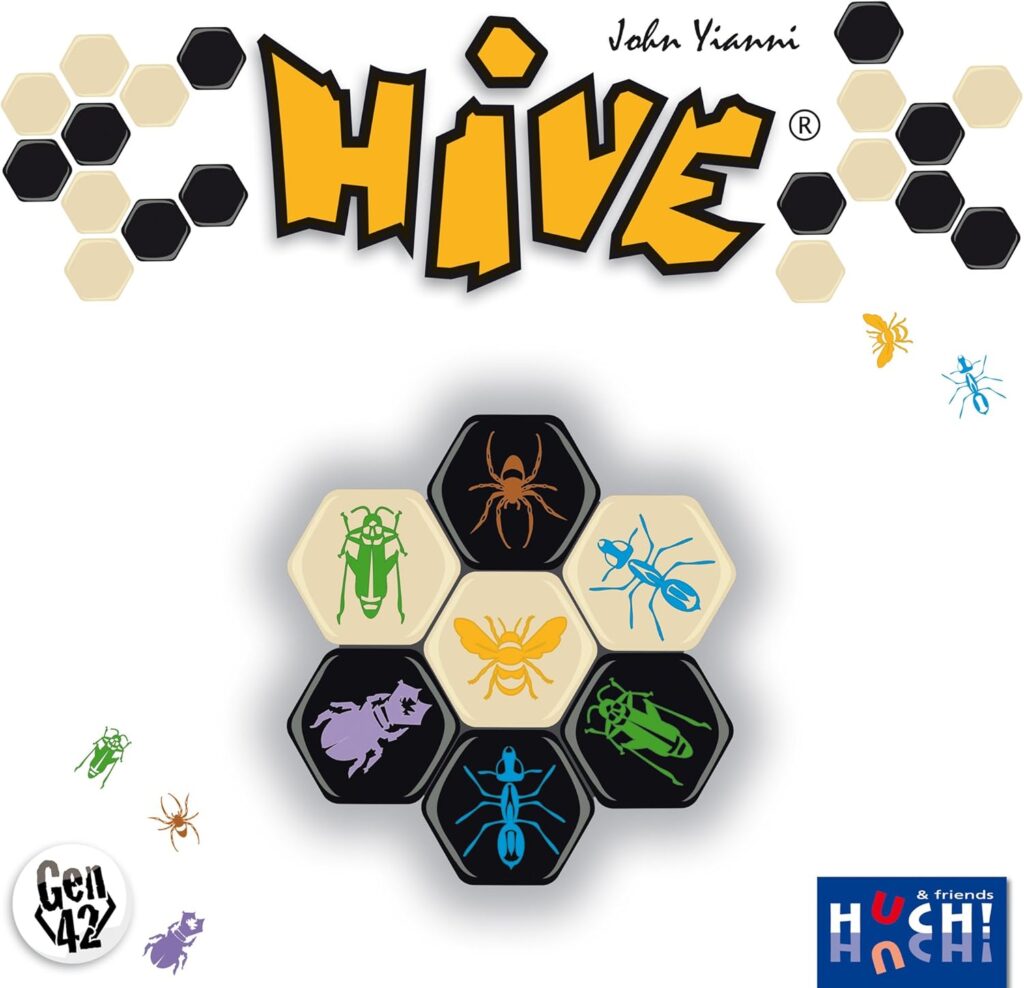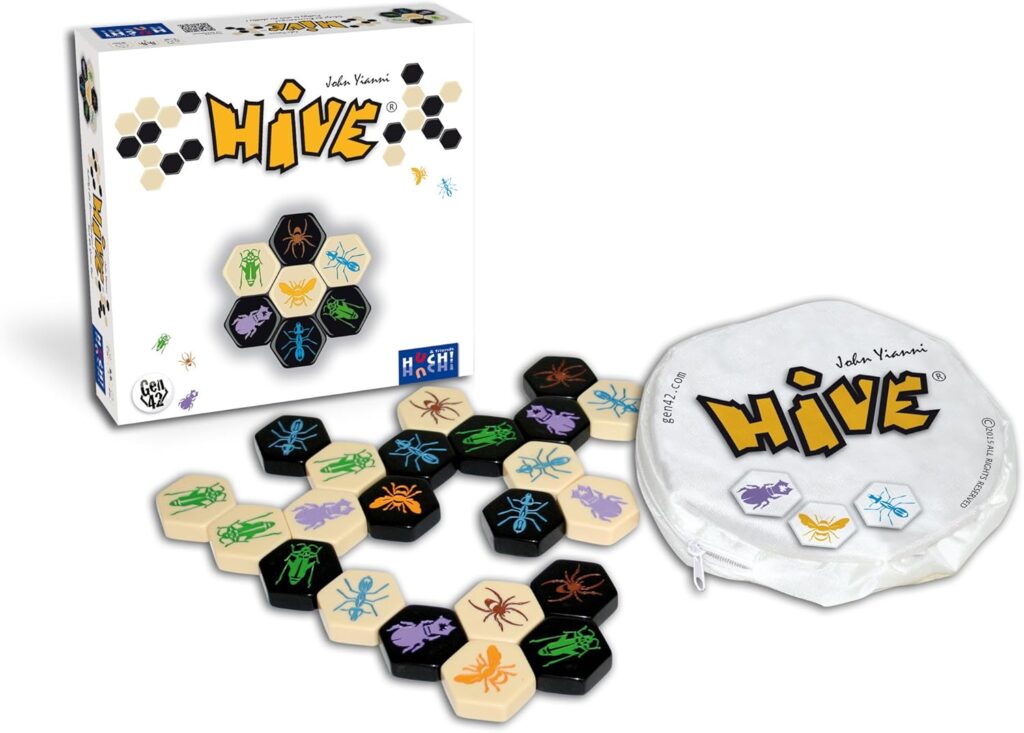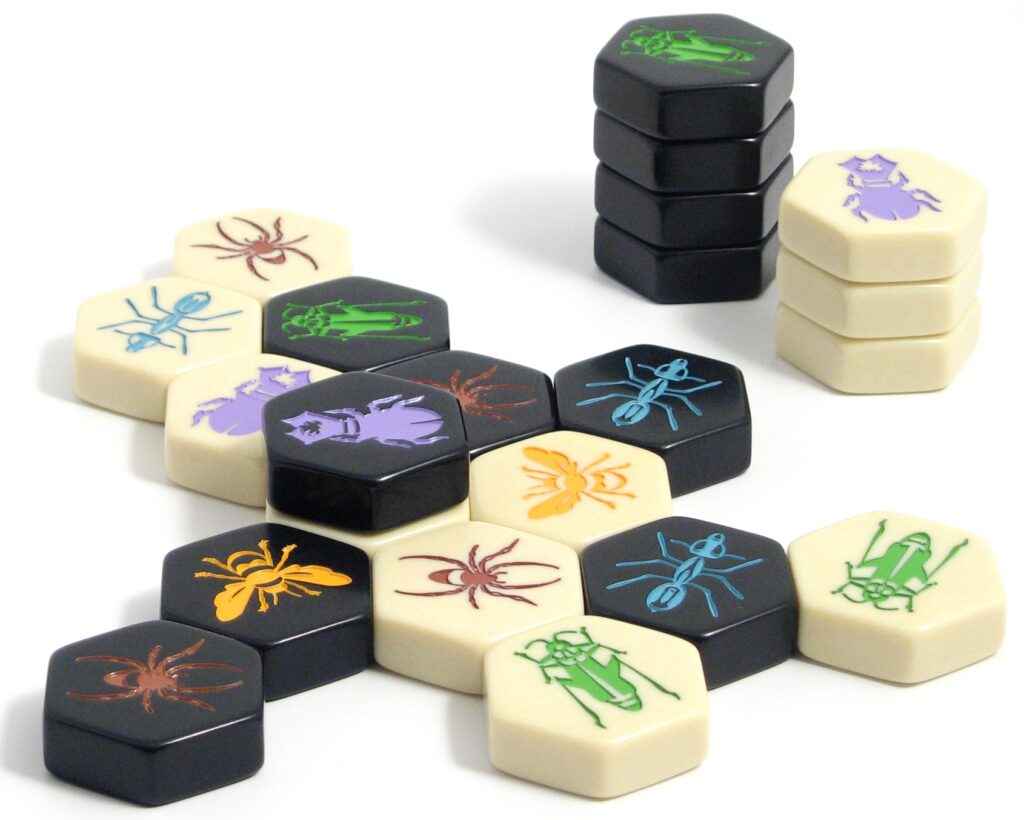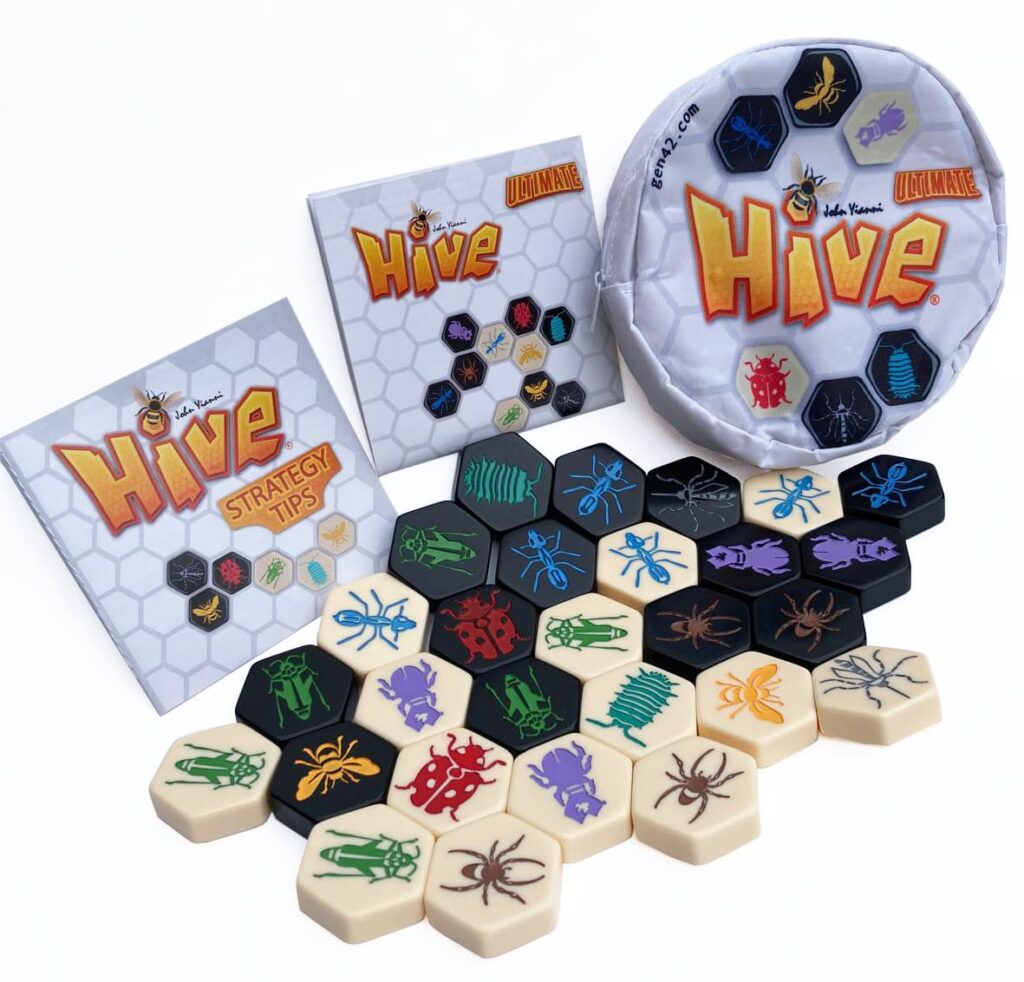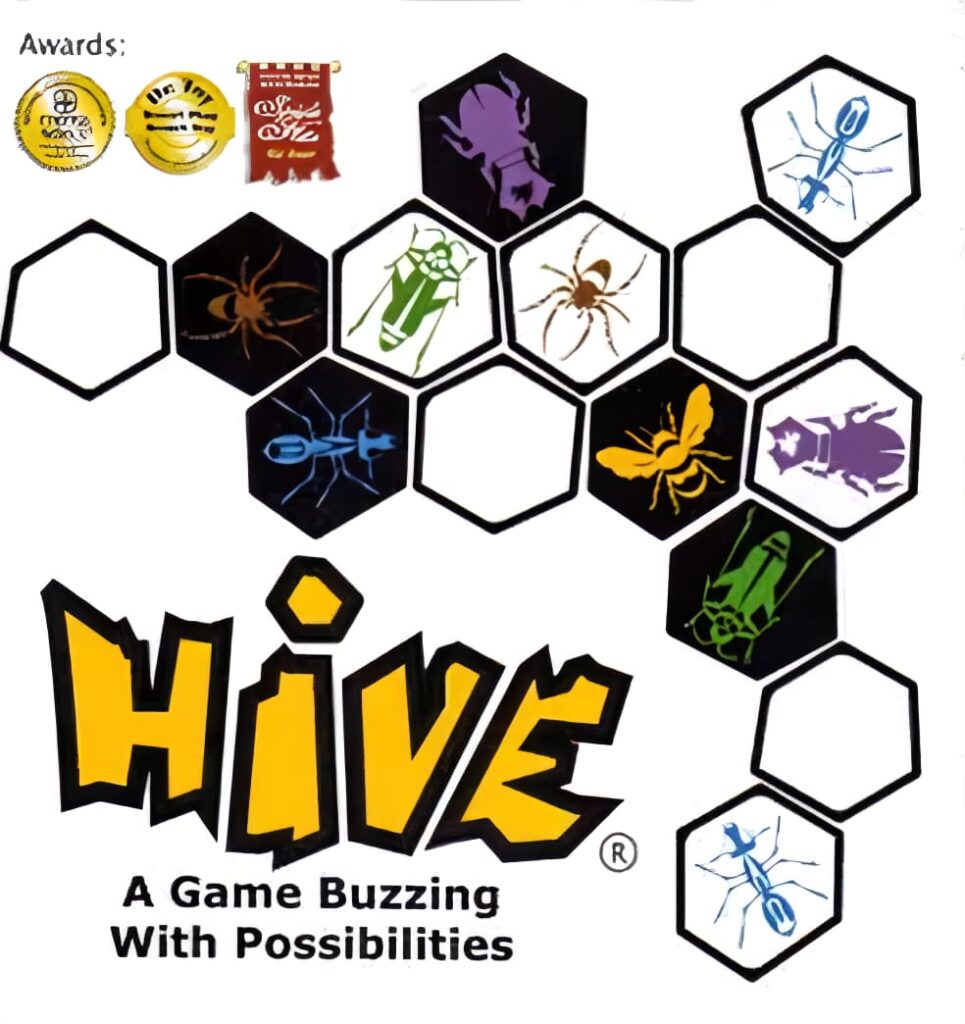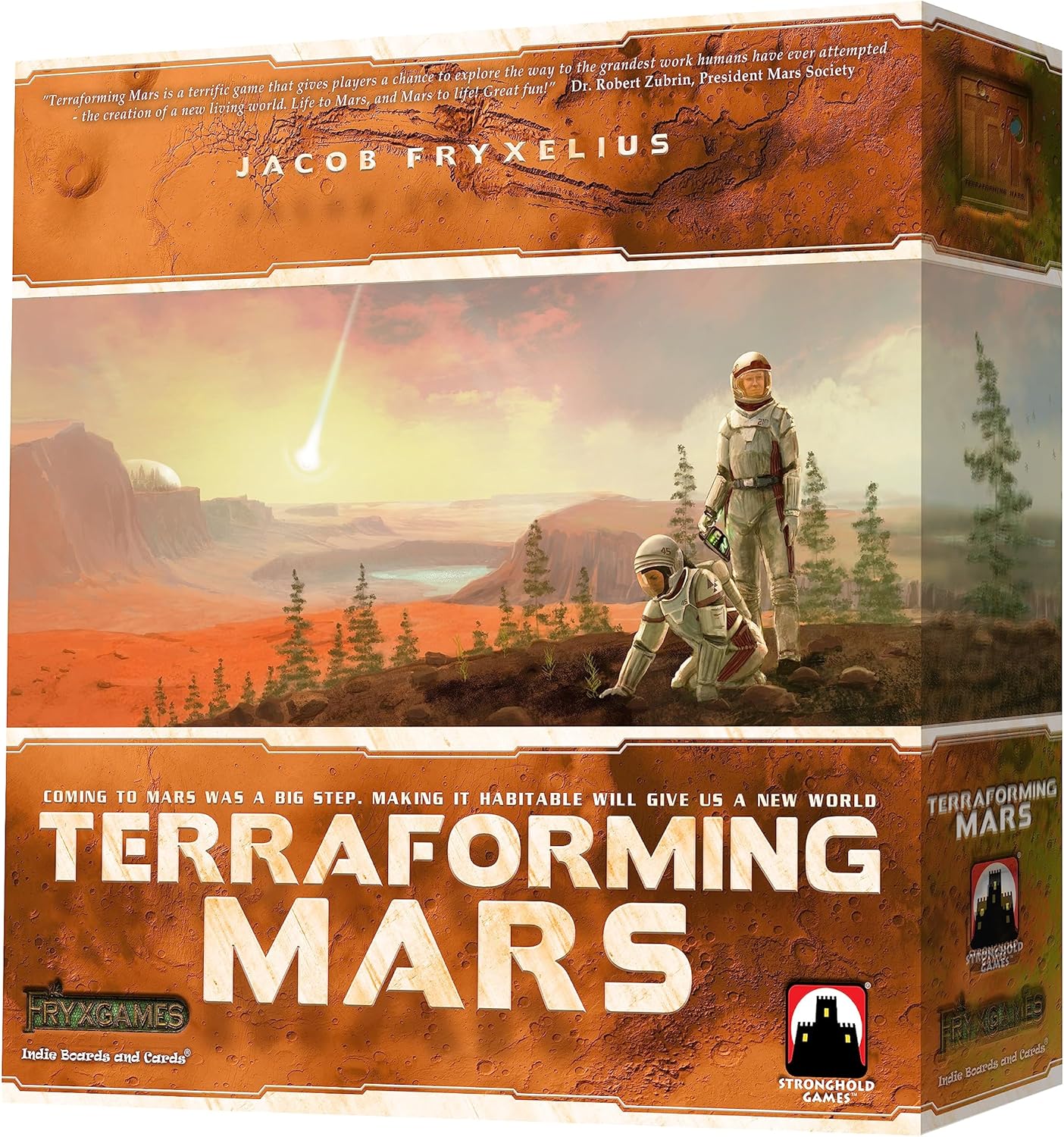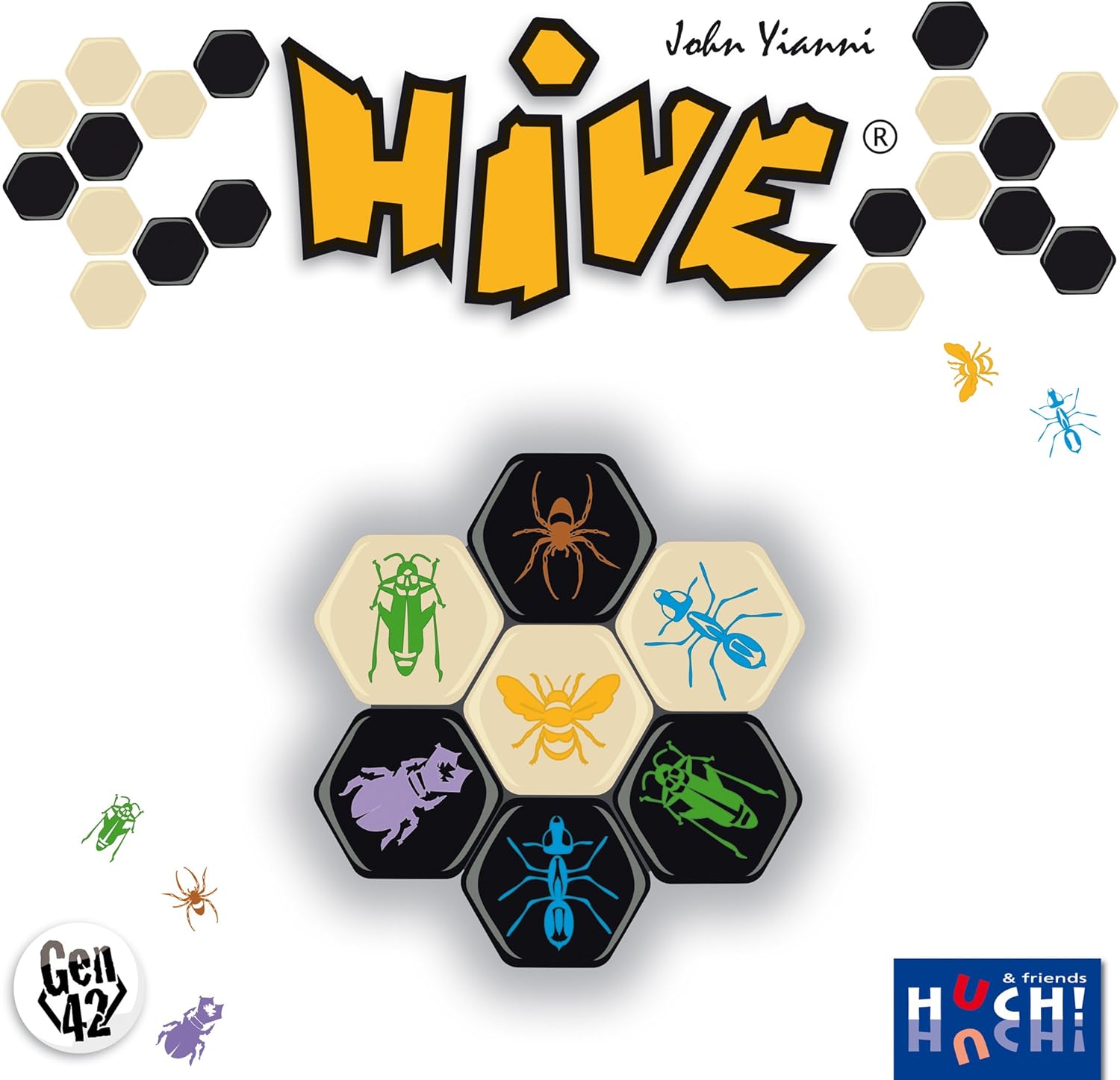Hive is a brilliant showcase of how abstract strategy can thrive without a board, cards, or any randomness. It’s a two-player game built entirely around spatial control, pattern recognition, and timing. Players take turns placing and moving insect-themed tiles in an effort to surround their opponent’s queen bee, using the unique movement rules of ants, spiders, beetles, grasshoppers, and the queen herself.
Despite its minimalist setup, Hive offers a tense, chess-like battle that starts simple but develops into a rich tactical duel. Every move alters the hive’s structure, shifting the spatial puzzle and creating new pathways or traps. Unlike many abstract games, Hive is fast and fluid, with a short playtime and minimal setup that makes it as easy to pull off the shelf as it is to dive deep into.
Visual Design & Theme
Hive’s visual design is clean, geometric, and highly functional. Each hexagonal tile features a stylized insect in bold, contrasting colors—typically black and white backgrounds with brightly colored illustrations to distinguish piece types. The clarity of the design helps new players quickly identify each tile’s role, while the hex format allows for flexible, organic gameplay.
The insect theme adds charm without intruding on the abstract nature of the game. While it doesn’t create narrative immersion, it provides intuitive associations—ants are fast and mobile, beetles can climb and pin, grasshoppers leap. These connections help players internalize the movement rules and give Hive an identity that distinguishes it from purely geometric games.
Production Value
The physical quality of Hive’s components is exceptional. Each tile is made from thick, bakelite-style plastic, similar in weight and feel to Mahjong tiles. They’re durable, weather-resistant, and satisfying to hold, making Hive ideal for both indoor and outdoor play. The game can be played on any flat surface—a table, the ground, even a rock—thanks to its sturdy construction and lack of a board.
The included travel pouch is well-sized and portable, making Hive an excellent choice for gaming on the go. It packs easily into a backpack or suitcase, and the tiles are virtually indestructible. For a small box game, Hive punches well above its weight in tactile quality and portability.
Ease of Learning
Hive is very approachable. The rulebook is short, and most players will grasp the basics within their first few turns. Each insect type has its own movement pattern, and the interactions between tiles are governed by just a few consistent rules: no breaking the hive, no sliding into tight spaces, and no moving the queen before the fourth turn.
The real depth comes in mastering positioning and tempo. Learning when to place new tiles, when to move existing ones, and when to shift from offense to defense adds a strategic richness that takes time to master. But the learning curve is smooth, and every game teaches something new.
Setup & Teardown Time
Setup takes under a minute. Just hand each player their 11 insect tiles, clear a flat surface, and start playing. There’s no shuffling, no sorting, and no boards or cards to manage. Teardown is just as quick—drop the pieces back in the pouch and you’re done.
This ease of setup makes Hive one of the most accessible strategy games available. It’s perfect for spontaneous sessions, travel play, or fitting in a quick match between longer games.
Gameplay Pace
Hive plays quickly. A typical match lasts 15 to 25 minutes, with turns that often take less than 30 seconds. As the hive grows, decisions become more complex, but the lack of downtime keeps the game engaging from start to finish.
The pacing is particularly effective in building tension. As both players maneuver around the queen bee, the pressure mounts turn by turn. One mistake can shift the balance of power, but the game is fast enough that losses feel like learning opportunities, not frustrations.
Replayability
Replayability in Hive is remarkably high given its simplicity. Because every tile is open information and there’s no randomness, each match is a pure contest of skill. The spatial puzzle changes with every game, and the flexible nature of tile placement means no two hives ever look alike.
For players who enjoy deep mastery, Hive is a rewarding sandbox. It also benefits from expansions—such as the Mosquito, Ladybug, and Pillbug—which introduce new movement abilities and add complexity without sacrificing clarity. But even the base game alone has enough variety to support dozens of plays.
Conclusion
Hive is a minimalist masterpiece—fast, elegant, and endlessly replayable. It strips away all unnecessary elements to focus on pure tactical interaction, resulting in a strategic experience that’s easy to learn, portable, and highly addictive. Its abstract nature won’t be for everyone, but for players who love tight, head-to-head duels with zero luck and total control, Hive is an essential classic.

